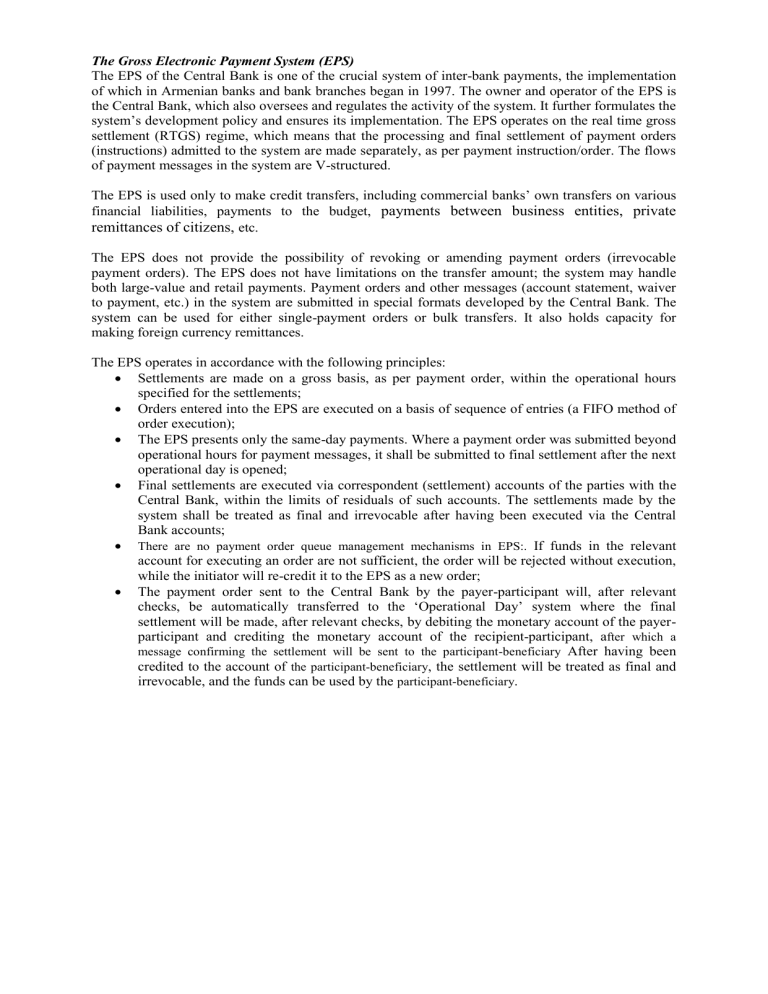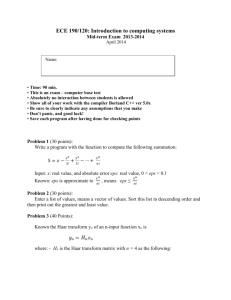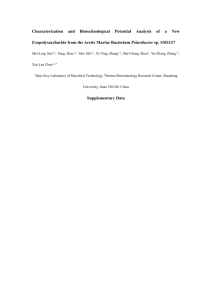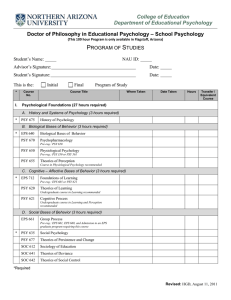Gross Electronic Payment System

The Gross Electronic Payment System (EPS)
The EPS of the Central Bank is one of the crucial system of inter-bank payments, the implementation of which in Armenian banks and bank branches began in 1997. The owner and operator of the EPS is the Central Bank, which also oversees and regulates the activity of the system. It further formulates the system’s development policy and ensures its implementation. The EPS operates on the real time gross settlement (RTGS) regime, which means that the processing and final settlement of payment orders
(instructions) admitted to the system are made separately, as per payment instruction/order. The flows of payment messages in the system are V-structured.
The EPS is used only to make credit transfers, including commercial banks’ own transfers on various financial liabilities, payments to the budget,
payments between business entities, private remittances of citizens,
etc.
The EPS does not provide the possibility of revoking or amending payment orders (irrevocable payment orders). The EPS does not have limitations on the transfer amount; the system may handle both large-value and retail payments. Payment orders and other messages (account statement, waiver to payment, etc.) in the system are submitted in special formats developed by the Central Bank. The system can be used for either single-payment orders or bulk transfers. It also holds capacity for making foreign currency remittances.
The EPS operates in accordance with the following principles:
Settlements are made on a gross basis, as per payment order, within the operational hours specified for the settlements;
Orders entered into the EPS are executed on a basis of sequence of entries (a FIFO method of order execution);
The EPS presents only the same-day payments. Where a payment order was submitted beyond operational hours for payment messages, it shall be submitted to final settlement after the next operational day is opened;
Final settlements are executed via correspondent (settlement) accounts of the parties with the
Central Bank, within the limits of residuals of such accounts. The settlements made by the system shall be treated as final and irrevocable after having been executed via the Central
Bank accounts;
There are no payment order queue management mechanisms in EPS:. If funds in the relevant account for executing an order are not sufficient, the order will be rejected without execution, while the initiator will re-credit it to the EPS as a new order;
The payment order sent to the Central Bank by the payer-participant will, after relevant checks, be automatically transferred to the ‘Operational Day’ system where the final settlement will be made, after relevant checks, by debiting the monetary account of the payerparticipant and crediting the monetary account of the recipient-participant, a fter which a message confirming the settlement will be sent to the participant-beneficiary After having been credited to the account of the participant-beneficiary , the settlement will be treated as final and irrevocable, and the funds can be used by the participant-beneficiary .








